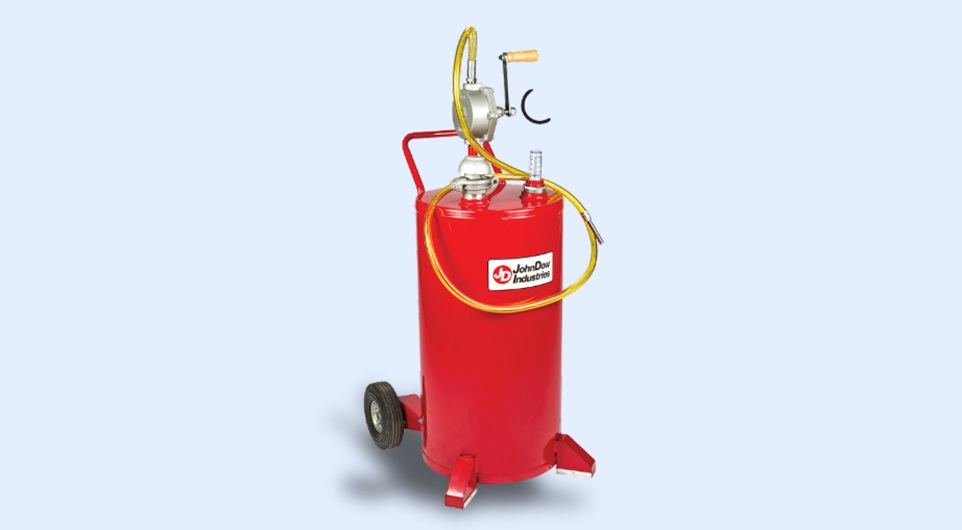Fuel storage and handling are critical aspects of running an efficient and safe automotive shop. Whether you’re managing a small repair facility or a large-scale service center, ensuring proper storage of combustible materials not only safeguards your operations but also enhances productivity. Investing in quality fuel handling equipment is essential, as it helps streamline day-to-day tasks while maintaining safety standards.
Why Proper Fuel Storage Matters
Handling and storing fuel isn’t just about compliance with regulations – it’s about protecting your team, your assets, and the environment. Improper storage can lead to spills, contamination, or even fires. An automotive shop often works with various forms of fuel, including gasoline and diesel, which are highly flammable. These materials require specially designed equipment to reduce risks and improve handling.
Proper fuel storage also minimizes waste. Contamination or leaks resulting from unsuitable containers mean unnecessary expenses and inefficient use of materials. For automotive shops, every ounce of saved fuel adds up, improving bottom-line results. Additionally, it keeps your shop compliant with local and federal guidelines, sparing you the headache of penalties or shutdowns.
Best Practices for Fuel Storage and Management
Use Appropriate Containers and Dispensers
One of the first steps to ensuring proper fuel storage is using containers and systems designed specifically for fuel. These containers should be durable, leak-proof, and resistant to corrosion. Similarly, dispensers play a crucial role in maintaining an efficient fuel station within your shop. Choosing the right fuel dispenser can simplify fueling operations and ensure accuracy while reducing spillage risks. Look for features like automated shut-off mechanisms and compatibility with your fuel type.
Regular Inspections and Maintenance
Even the best equipment requires upkeep. Regularly inspect fuel tanks, handling systems, and pumps for signs of wear or damage. Addressing small issues early can prevent more costly problems in the future. Maintenance tasks, such as cleaning tanks or replacing filters, ensure your fuel remains uncontaminated. Smaller operational adjustments, like monitoring for overfilling or ensuring vents are clear, also contribute to longer-lasting equipment and safer conditions.
Safety Protocols and Employee Training
Beyond the physical equipment, proper fuel storage involves creating a culture of safety. Train your staff on the correct way to handle fuel and respond to emergencies. Displaying clear safety signs around fuel storage areas can serve as helpful reminders. Employees should also understand the risks associated with fuel and know how to use protective gear when working in high-risk zones.
Balancing Safety and Efficiency in Automotive Shops
While safety is the top priority, fuel storage solutions should also focus on enhancing workflow efficiency. For automotive shops with high volumes, an organized system with flexible dispensing options can make a significant difference. Features like easy access to tanks, proper labeling, and strategically placed dispensing units all help streamline operations.
Additionally, integrating advanced fuel monitoring systems can prevent overuse, detect leaks early, and provide valuable data on consumption patterns. Leveraging such tools not only optimizes fuel usage but also cuts down unnecessary expenses.
The Environmental Impact of Proper Fuel Storage
Automotive shops also have a responsibility to minimize their environmental footprint. A single fuel leak could seep into local water systems or soil, causing extensive harm. Properly maintained storage systems and the use of secure equipment ensure harmful substances don’t escape into the surrounding environment. By adopting environmentally friendly practices, your shop also improves its reputation and contributes to a cleaner future.
Conclusion
Investing in high-quality equipment and setting up proper procedures for fuel storage is an investment in the safety and efficiency of your automotive shop. From selecting the right handling systems to implementing regular maintenance routines, there are multiple ways to improve how you store and use fuel. By combining safe practices with suitable tools, automotive shops not only reduce risks but also become more productive and sustainable.





